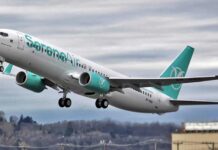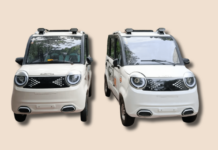If you are operating an on-demand ride-hailing delivery service, it would make sense for you to know exactly where your delivery vehicles are going.
That is the logic behind the recently announced partnership between the TPL Trakker, a location-based tracking service, and Bykea, the motorcycle-based ride-hailing and logistics service. TPL Trakker’s location-based dataset covers more than 400 cities, 4.5 million geocoded addresses, and 600,000 kilometres of road network across Pakistan. Obviously, this is very helpful information for a company like Bykea.
On August 11, TPL Trakker announced in a notice to the PSX, that the company will be integrating its ‘Location-Based Service Application Programming Interface’ with Bykea’s mobile application, to improve the existing transportation, deliveries and cash on delivery payment services.
Both Bykea and TPL Trakker have been in the news recently, though for different reasons. Bykea is the flashier and possibly more well-known of the two. The company was started in December 2016 by Muneeb Maayr, the charismatic and camera-enthusiastic entrepreneur, who made a splash in Daraz before deciding to start Bykea. The company banks on two reliable factors that define young, urban Pakistan: access to a cheap smartphone, and a motorcycle.
A Bykea rider can deliver goods or cash to you faster, cheaper and more reliably, beating out cars and rickshaws, and the general sluggishness of other delivery methods. The platform has more than 500,000 bikes registered on its platform, which is designed in Urdu, and operates in Karachi, Islamabad, Rawalpindi, and Lahore. One can see Bykea riders in their bright green shirts zipping about in these metropolises.
TPL Trakker, on the other hand, has been in the news for initiating an initial public offering (IPO) this July, which represented the second IPO of this year on the exchange. But that is not why one should pay attention to TPL. A location-based tracking service does not sound interesting unless you take a look at the history and the geography of where this company operates. Turns out, Bykea is a well thought out investment for the company’s grand future plans.
What explains the rise of car tracking service company? You can thank Karachi’s car-jacking culture of the 2000s for that. We do not say this in jest or in bitterness (though the writer of this piece is from Karachi, and has had their car’s side-view mirrors stolen three times). We say this because it is a fact.
TPL Trakker today is part of TPL Corp Limited, a technology conglomerate that today focuses on auto, marine, fire, life and health Insurance, real estate development and security services. But the genesis of the company was in 1999, when the company sought a vehicle tracking licence. At the time, motor insurance, or tracking services, was a non-existent industry, but TPL saw an opportunity. More people in Pakistan were going to buy cars, and as history would have it, more people’s cars were about to be stolen. In 2001, the company started fleet management and stolen vehicle recovery services. In 2002, it began to expand its branches.
The company TPL Trakker Limited was formally incorporated in Pakistan in December 2008, and was listed on the PSX in 2012. In 2017, TPL Trakker Limited was renamed TPL Corp Limited, which now controlled TPL Insurance and so on, while the data location and tracking services were incorporated into a separate company, called TPL Trakker Ltd. This is a subsidiary of TPL Corp Limited.
TPL Trakker’s core business revolves around three core segments, which are car tracking, digital mapping and location services, and industrial internet of things (IoT) solutions. In 2019, the company’s revenue stood at Rs1.77 billion, though its net profit decreased by 62.8% to Rs36 million.
TPL Trakker has always been a company on the lookout for partnership. Back in 2006, it entered into a joint venture with the Al Jaber group in the UAE, and set up Trakker Middle East. This has more than 1500 customers in the UAE, including the Dubai Police and the Abu Dhabi National Oil Company (ADNOC), which are two of the largest regulators in the UAE.
Now, the company is good at what it does: for instance, TPL’s stolen vehicle recovery service has recovered more than Rs7 billion worth of vehicles till date and has a recovery rate of more than 90%.
But fundamentally, the company still relies heavily on the idea that people will buy cars. The penetration of automobiles is extremely low in Pakistan, with approximately 13 cars per 1,000 inhabitants (in 2014), compared to 206 cars per 1,000 in Thailand or 60 cars per 1000 in Indonesia. While there is definite room for growth, sales of automobiles have also plummeted in the last year or so. It is something that the company noted in its own prospectus issued this July: “The sale of automobiles used to be amongst the key revenue drivers for TPL Trakker. However, over the years the company has reduced its dependence on sale of automobiles.”
So, what is it looking at instead? First, the company decided to track cargo containers in 2013, under FBR licence, and has monitored more than 400,000 container trips, usually along the border between Afghanistan and Pakistan. This has proved to be a smart decision, because the China Pakistan Economic Corridor (CPEC) means container volume is expected to go up by 60%. Additionally, the Oil and Gas Regulatory Authority (OGRA) has made it mandatory for all oil tankers to install ‘video vehicle telematics’, which is another way of saying ‘monitoring devices for drivers’. That is where TPL Trakker can shine.
Second, the company has made it an explicit focus to venture into digital mapping and location-based services. Look at what TPL Trakker outlines in its prospectus: “Ride-Hailing services that depend on digital maps are replacing traditional taxis. Consumer preference is shifting towards ordering food delivery vs. eating in, which also needs digital maps for their last-mile delivery & route optimization…as innovations in self-driving vehicles emerge, it’s clear that robust GIS car systems are the basis for successful navigation.”
Sound familiar? Clearly TPL Trakker has decided that Bykea, though a small company for now, is the future. Plus, it will be good practise for the day when self-driving cars show up on the roads of Pakistan – and you can be sure TPL Trakker will try to be the voice of navigation there too.


























flotilla IoT software designed for real-time tracking and fleet management system, steering your fleet to a more profitable future. Get detailed and insightful information that helps you make data-driven decisions.
thanks
Hello
thank s for sharing this wonderful blog.
Yes In fact, The sale of automobiles used to be amongst the key revenue drivers for TPL Trakker.
Freda’s is also online shopping store to buy online cloths, jakcets, blazer, shirts, pants etc.